Lcd companion boards support (VKLCD50RTA & VKLCD70RT)
What is this ?
This is a demo program using Renesas RGA library & USB Camera to demonstrate VK-RZ/A1H's companion boards workability.
Supported companion Boards:
VKLCD50RTA
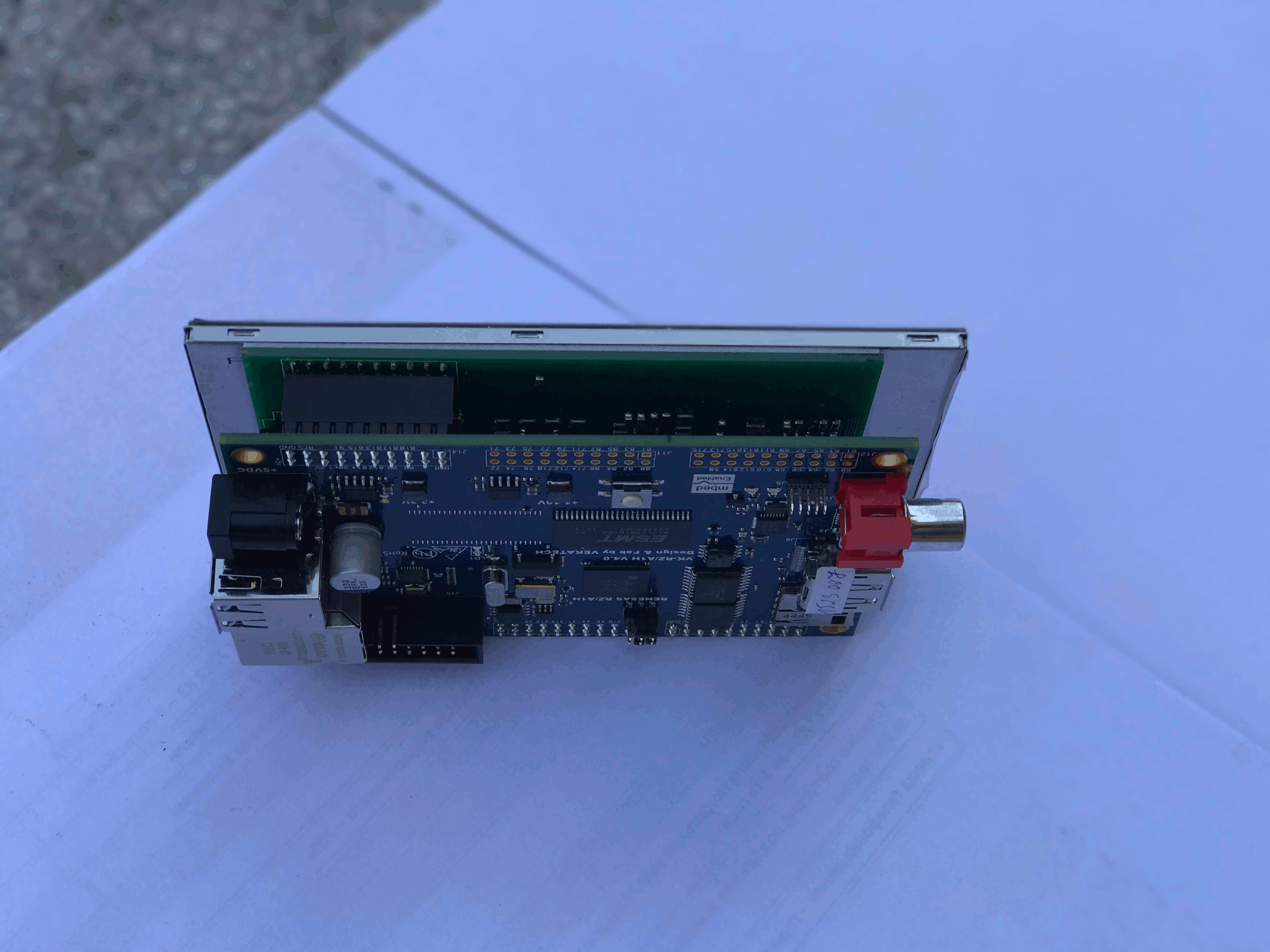
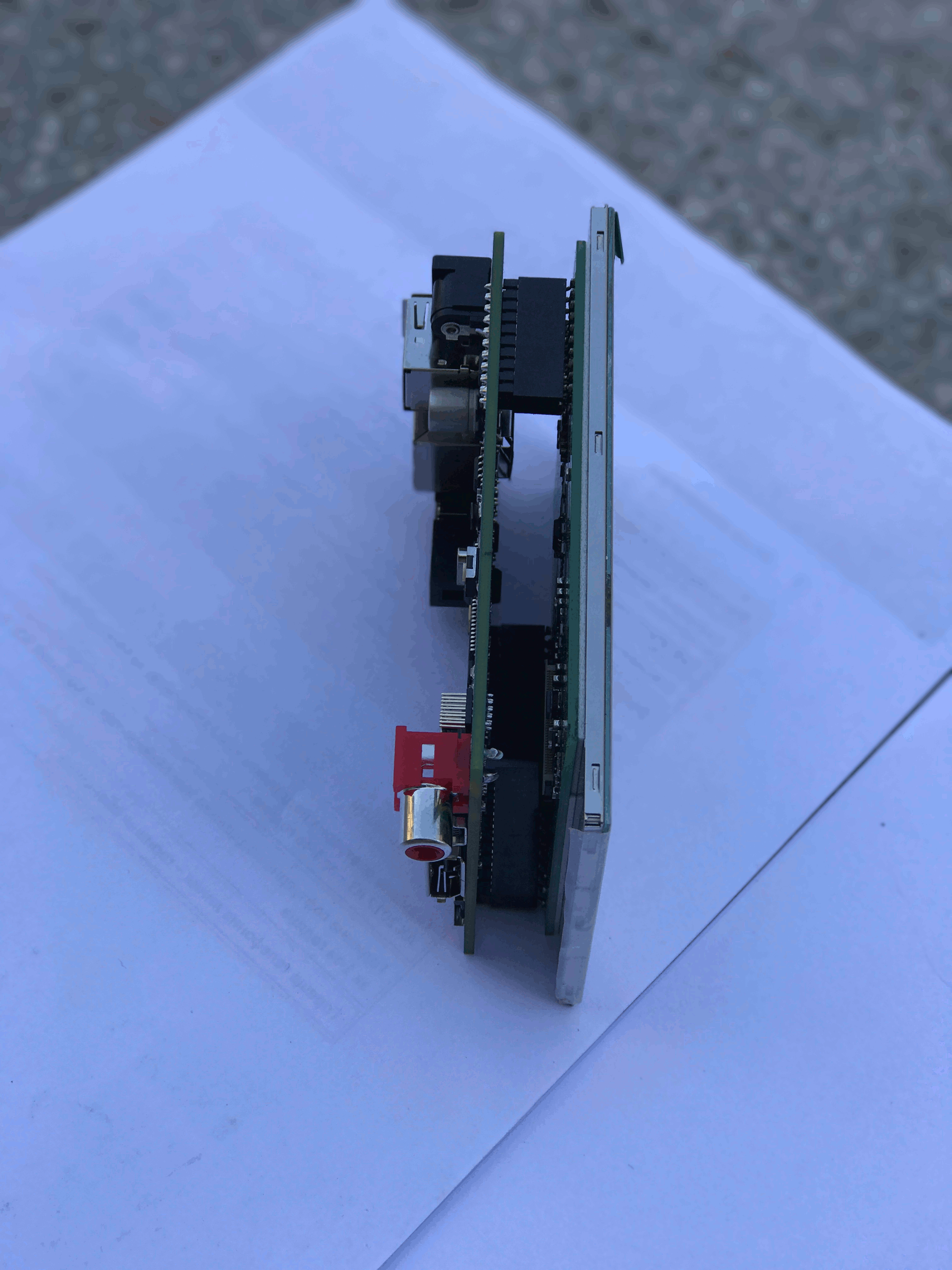
VKLCD70RT
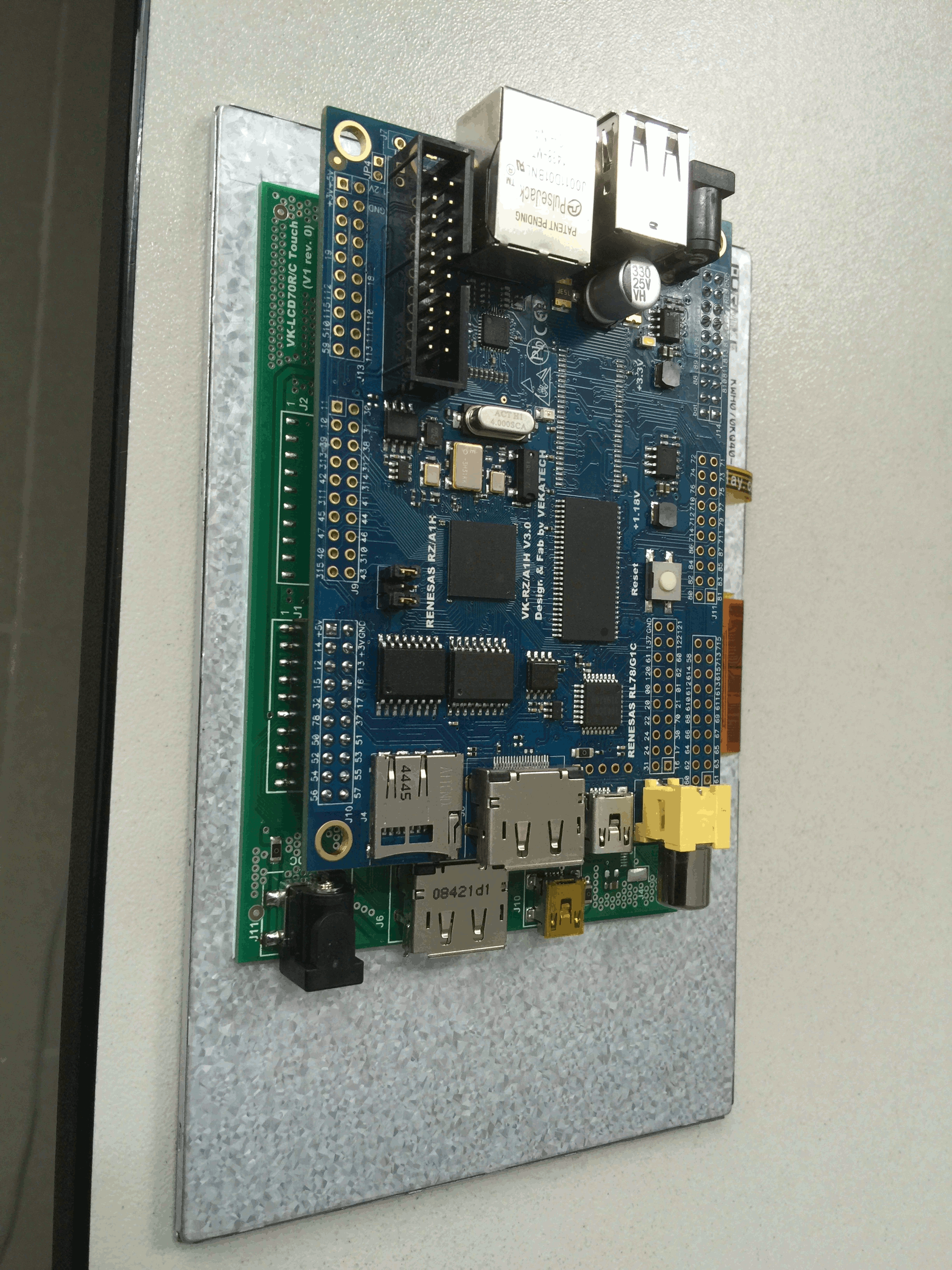
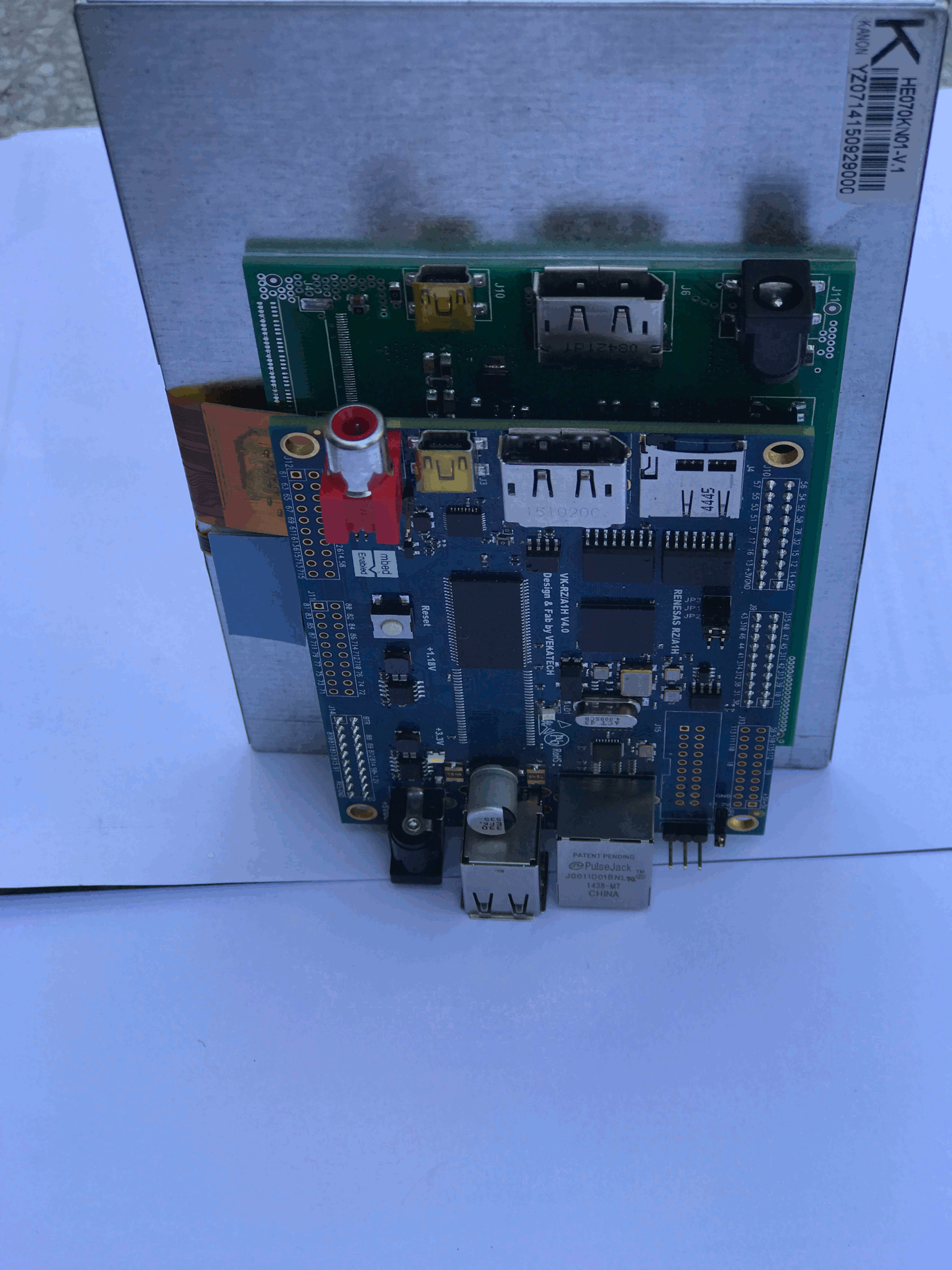
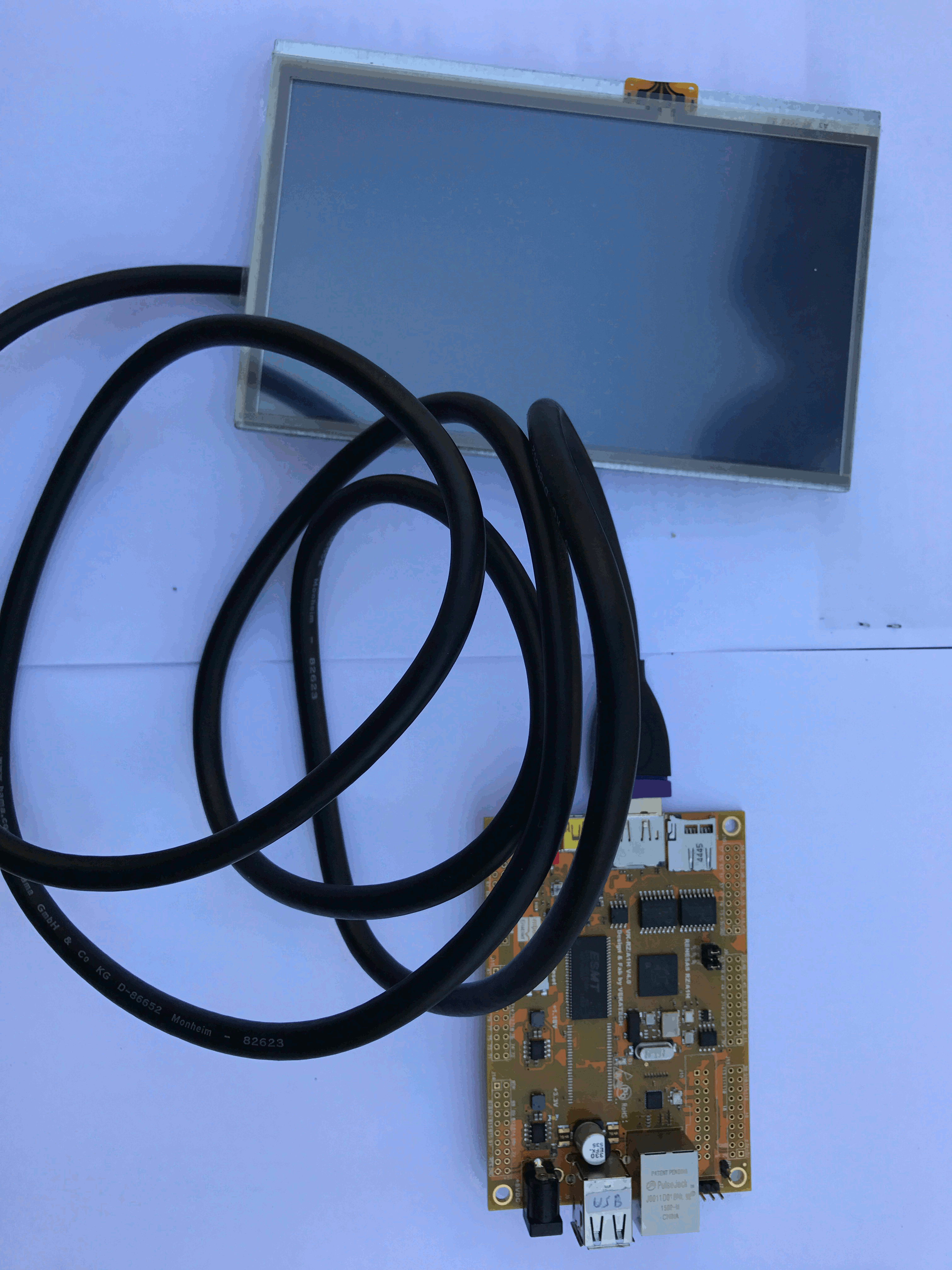
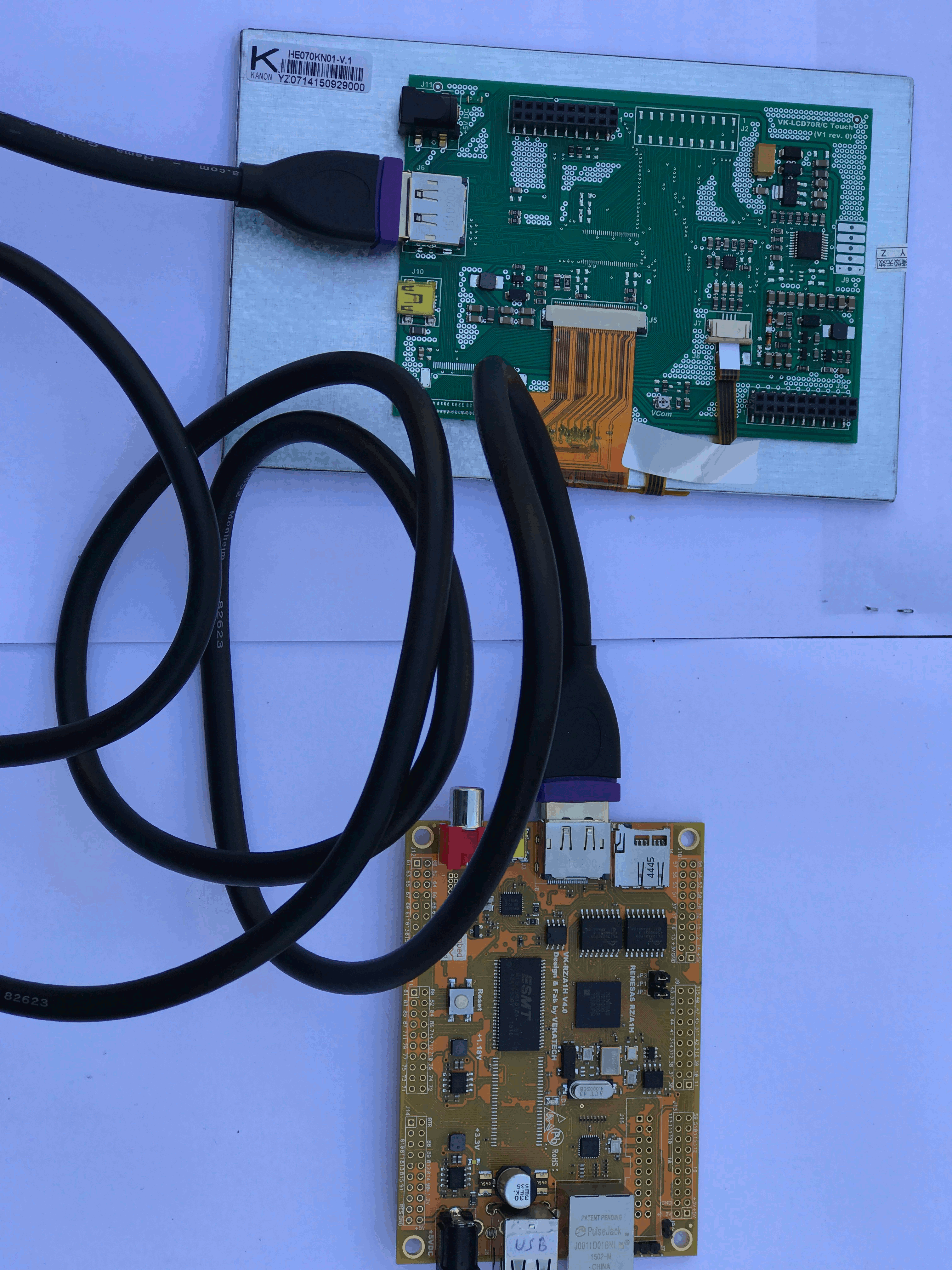
How to Configure ?
You can choose which display is installed by altering the lcd_panel.h file
Leave the active one & comment out the others:
#define LCD_VDC5_CH0_PANEL LCD_CH0_PANEL_VKLCD50RTA //#define LCD_VDC5_CH0_PANEL LCD_CH0_PANEL_VKLCD70RT
You can alter the whole demo with your pictures if you like:
How to compile ?
- The Demo can be compiled in 3 modes:
- I. Execution from the internal 10-MB on-chip SRAM.
- II. Execution from the on-board serial FALSH in dual (32-MB) mode.
- After import in the online compiler just leave only the VKRZA1H_DOUBLE.sct & delete all others linker files in the TOOLCHAIN_ARM_STD folder.
- Drag & drop the result binary in MBED disk, (previously inited in double flash mode)
- III. Execution from the on-board serial FALSH in single (16-MB) mode.
- After import in the online compiler just leave only the VKRZA1H_SINGLE.sct & delete all others linker files in the TOOLCHAIN_ARM_STD folder.
- Drag & drop the result binary in MBED disk, (previously inited in single flash mode )
Quick presentation:
Other demos ?
More demos you can find on our FTP
USB/USBHost/USBEndpoint.h
- Committer:
- tvendov
- Date:
- 2017-02-16
- Revision:
- 0:6435b67ad23c
File content as of revision 0:6435b67ad23c:
/* mbed USBHost Library
* Copyright (c) 2006-2013 ARM Limited
*
* Licensed under the Apache License, Version 2.0 (the "License");
* you may not use this file except in compliance with the License.
* You may obtain a copy of the License at
*
* http://www.apache.org/licenses/LICENSE-2.0
*
* Unless required by applicable law or agreed to in writing, software
* distributed under the License is distributed on an "AS IS" BASIS,
* WITHOUT WARRANTIES OR CONDITIONS OF ANY KIND, either express or implied.
* See the License for the specific language governing permissions and
* limitations under the License.
*/
#ifndef USBENDPOINT_H
#define USBENDPOINT_H
#include "FunctionPointer.h"
#include "USBHostTypes.h"
#include "rtos.h"
class USBDeviceConnected;
/**
* USBEndpoint class
*/
class USBEndpoint
{
public:
/**
* Constructor
*/
USBEndpoint() {
state = USB_TYPE_FREE;
nextEp = NULL;
};
/**
* Initialize an endpoint
*
* @param hced hced associated to the endpoint
* @param type endpoint type
* @param dir endpoint direction
* @param size endpoint size
* @param ep_number endpoint number
* @param td_list array of two allocated transfer descriptors
*/
void init(HCED * hced, ENDPOINT_TYPE type, ENDPOINT_DIRECTION dir, uint32_t size, uint8_t ep_number, HCTD* td_list[2]);
/**
* Set next token. Warning: only useful for the control endpoint
*
* @param token IN, OUT or SETUP token
*/
void setNextToken(uint32_t token);
/**
* Queue an endpoint
*
* @param endpoint endpoint which will be queued in the linked list
*/
void queueEndpoint(USBEndpoint * endpoint);
/**
* Queue a transfer on the endpoint
*/
void queueTransfer();
/**
* Unqueue a transfer from the endpoint
*
* @param td hctd which will be unqueued
*/
void unqueueTransfer(volatile HCTD * td);
/**
* Attach a member function to call when a transfer is finished
*
* @param tptr pointer to the object to call the member function on
* @param mptr pointer to the member function to be called
*/
template<typename T>
inline void attach(T* tptr, void (T::*mptr)(void)) {
if((mptr != NULL) && (tptr != NULL)) {
rx.attach(tptr, mptr);
}
}
/**
* Attach a callback called when a transfer is finished
*
* @param fptr function pointer
*/
inline void attach(void (*fptr)(void)) {
if(fptr != NULL) {
rx.attach(fptr);
}
}
/**
* Call the handler associted to the end of a transfer
*/
inline void call() {
rx.call();
};
// setters
inline void setState(USB_TYPE st) { state = st; }
void setState(uint8_t st);
void setDeviceAddress(uint8_t addr);
inline void setLengthTransferred(int len) { transferred = len; };
void setSpeed(uint8_t speed);
void setSize(uint32_t size);
inline void setDir(ENDPOINT_DIRECTION d) { dir = d; }
inline void setIntfNb(uint8_t intf_nb_) { intf_nb = intf_nb_; };
// getters
const char * getStateString();
inline USB_TYPE getState() { return state; }
inline ENDPOINT_TYPE getType() { return type; };
inline uint8_t getDeviceAddress() { return hced->control & 0x7f; };
inline int getLengthTransferred() { return transferred; }
inline uint8_t * getBufStart() { return buf_start; }
inline uint8_t getAddress(){ return address; };
inline uint32_t getSize() { return (hced->control >> 16) & 0x3ff; };
inline volatile HCTD * getHeadTD() { return (volatile HCTD*) ((uint32_t)hced->headTD & ~0xF); };
inline volatile HCTD** getTDList() { return td_list; };
inline volatile HCED * getHCED() { return hced; };
inline ENDPOINT_DIRECTION getDir() { return dir; }
inline volatile HCTD * getProcessedTD() { return td_current; };
inline volatile HCTD* getNextTD() { return td_current; };
inline bool isSetup() { return setup; }
inline USBEndpoint * nextEndpoint() { return (USBEndpoint*)nextEp; };
inline uint8_t getIntfNb() { return intf_nb; };
USBDeviceConnected * dev;
Queue<uint8_t, 1> ep_queue;
private:
ENDPOINT_TYPE type;
volatile USB_TYPE state;
ENDPOINT_DIRECTION dir;
bool setup;
uint8_t address;
int transfer_len;
int transferred;
uint8_t * buf_start;
FunctionPointer rx;
USBEndpoint* nextEp;
// USBEndpoint descriptor
volatile HCED * hced;
volatile HCTD * td_list[2];
volatile HCTD * td_current;
volatile HCTD * td_next;
uint8_t intf_nb;
};
#endif